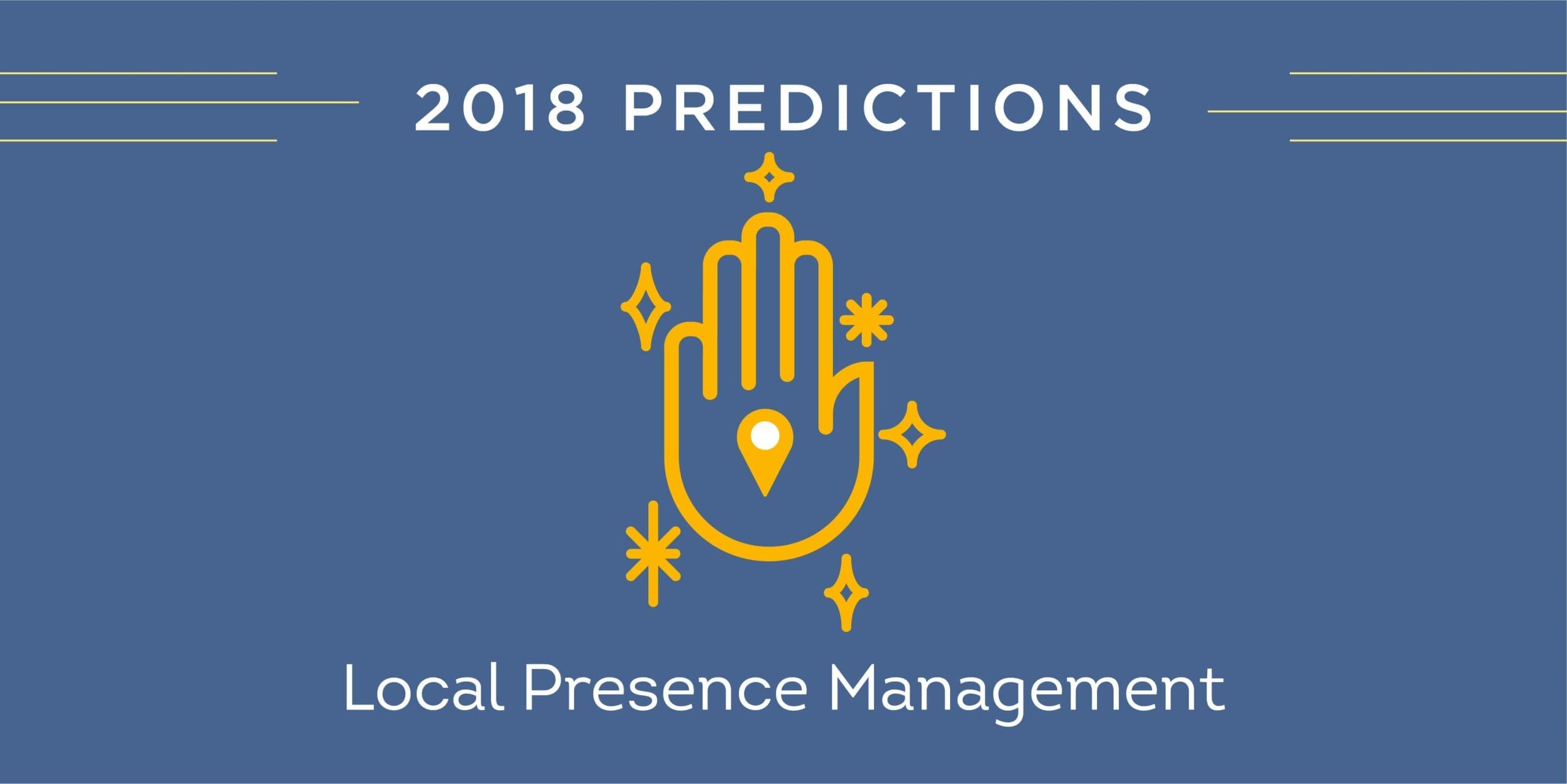
Maximize your local presence through strategic location management.

Like all aspects of digital marketing, local presence management is evolving quickly. The consumer shift to mobile-first has changed the game for location-based businesses — and embracing technology and understanding changes to Google’s search algorithms continues to hold the key to business success. Here are our top five predictions in the local presence management space for 2018.
From wait times at restaurants to the availability and price of gas and live product inventory, consumers don’t just want to know where your business is: they want to make sure they’ll have a satisfying experience once they arrive. Finding ways to leverage IoT data and integrate it into search engines will become essential fuel for standing out in a crowd.
In an effort to hold onto web traffic, Google has already launched Q&A, Reserve with Google and Posts to help users find the information they need without ever visiting company websites. Normally to see an FAQ, book an appointment or learn about events, consumers would have to go to our client’s website; now they get this on Google without ever going to the website. It is still important to have a website, as websites are still a major factor in ranking well. However, more and more web traffic will stay on Google instead of your website, which advances companies’ exposure in the market.
Google will know through different avenues such as location tracking if somebody saw a listing and then visited a store. Their ability to show a listing and track through a physical world conversion will influence what listings they show.
It is going to get even harder to win from an SEO standpoint in the maps channel. Additional expansion will need to be fueled by pay-to-play media buys. No longer will you be able to rely on the free organic traffic that search engines send you. This inventory of advertising space is going to shrink as search engines monetize this traffic source. So if you want to continue to grow your business you’ll need to invest in paid search.
Subscribe to our monthly newsletter.
Facebook will look to incorporate social media data into local search web results to provide a local search experience completely unseen before and entirely unique. This experience will live on Facebook and be a new way to use your voice, computer or mobile device to find local businesses. Google tries to look at local search from three points of view: relevance, prominence and proximity. Facebook local search will take these same three points and overlay your social network recommendations to provide a fourth dimension.
2018 is going to be a huge year for local presence management marketers. Google and Facebook will remain the pillars of success, but how we use them and how we measure success could change greatly. It’s important to remember that as things change they remain the same. Local presence management is far easier if you are working with a truly great real-world business. There are going to be plenty of new technologies and integrations to focus on, but at the end of the day businesses who succeed will focus on providing high-quality products/services and great customer service.
Kyle Harris is the Product Director at DAC and is based out of New York. For more insights on how to maximize your local search presence on Google, please get in touch!
Maximize your local presence through strategic location management.
Maximize your local presence through strategic location management.
Subscribe to our monthly newsletter.